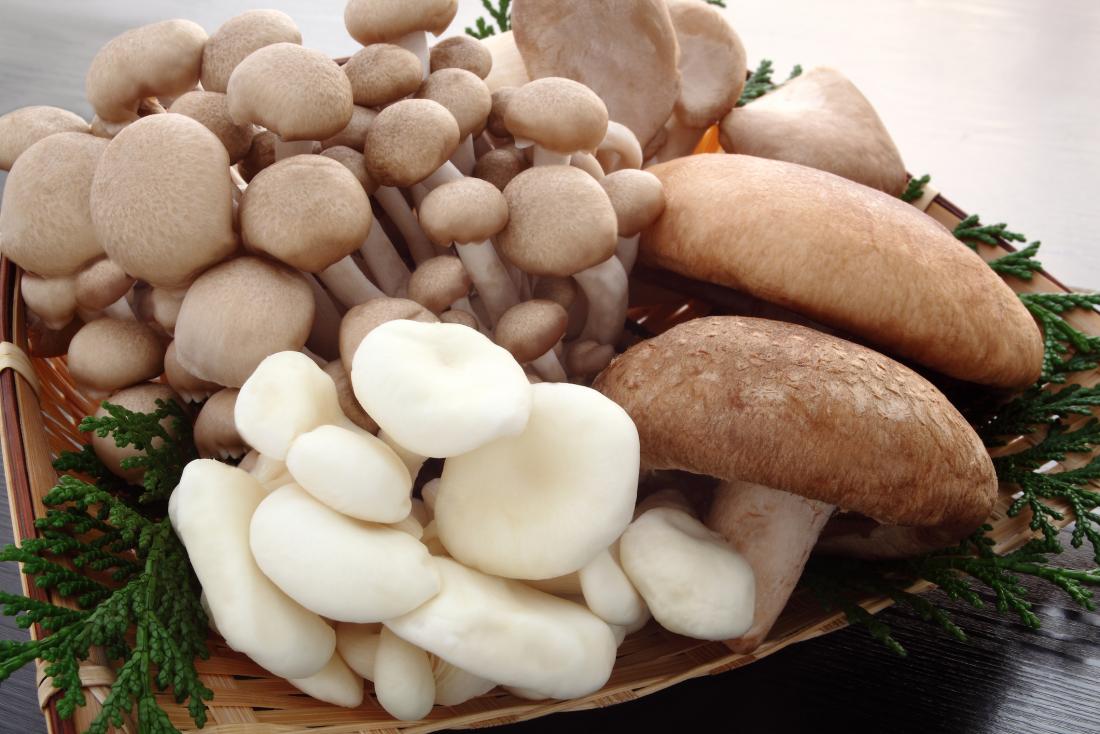
New research suggests that regularly eating mushrooms may reduce a person’s risk of prostate cancer.
The National Cancer Institute predict that there will be 174,650 new cases of prostate cancer in the United States in 2019.
Although treatment for this type of cancer is continually improving, there is neither a cure nor any way to prevent it.
However, evidence suggests that eating healthfully might reduce the risk.
If scientists can identify simple dietary interventions that can reduce this risk, even by a small amount, it could make a substantial difference globally.
Researchers have recently carried out a study on mushrooms, publishing their findings in the International Journal of Cancer.
Why mushrooms?
Mushrooms are a relatively inexpensive and widely consumed food throughout the world. In recent years, studies have begun to identify their potential disease fighting capabilities.
A 2012 review claims that certain compounds in mushrooms have anticancer, anti-inflammatory, and anti-diabetic properties, among others.
More specifically, studies in both cultured cells and animal models have found that extracts from some mushroom species can slow tumor growth.
According to the authors of the recent paper, only one previous human trial has investigated mushrooms and prostate cancer. The earlier study tested powdered white button mushrooms in men with recurrent prostate cancer.
The team found that for some of the participants, the mushroom extract reduced levels of prostate specific antigen (PSA) — the primary biomarker for prostate cancer — and boosted the body’s immune response to cancer.
The most recent study is the first to look at the relationship between mushroom consumption and the incidence of prostate cancer within a population.
Data collection
To investigate, the researchers took data from the Miyagi Cohort Study and the Ohsaki Cohort Study. In total, they had access to data from 36,499 Japanese men between the ages of 40 and 79 years. They followed these individuals for a median of 13.2 years.
The scientists used questionnaires to capture information about diet, medical history, levels of physical activity, smoking status, drinking habits, levels of education, and more.
They then assigned each participant to one of five groups based on their mushroom consumption:
- almost never: 6.9% of participants
- one or two times each month: 36.8%
- one or two times each week: 36.0%
- three or four times each week: 15.7%
- almost every day: 4.6%
During the follow-up period, there were 1,204 cases of prostate cancer, which equated to 3.3% of participants.
The mushroom effect
After controlling for confounding variables, the researchers observed a significant beneficial effect:
Compared with those who ate mushrooms less than once a week, those who ate mushrooms one or two times each week had an 8% lower relative risk of prostate cancer. Those who ate mushrooms three or more times each week had a 17% lower relative risk.
The authors conclude:
“To the best of our knowledge, this is the first cohort study indicating the prostate cancer-preventive potential of mushrooms at a population level.”
This relationship was significant even after controlling for a range of factors, including family history of cancer, alcohol and tobacco use, and coffee intake.
Importantly, they also adjusted their analysis for the amount of energy, meat, fruit, vegetables, and dairy that each participant consumed — in other words, the reduction in risk was not, for instance, because the participants who ate more mushrooms also ate more vegetables.
However, it is worth noting that the increase in the incidence of prostate cancer between those eating the fewest mushrooms and those eating the most is just 0.31% (3.42% compared with 3.11%, respectively).
Also, the effect was only significant in men older than 50 years. The authors believe that this might be because prostate cancer is much rarer in younger men.
Limitations and questions
There are certain limitations to the study. Firstly, using self-reported dietary information is not ideal because it is open to error and misreporting. However, with a study of this size, there is no viable alternative.
Along similar lines, the team only recorded dietary information once, at the beginning of the study. Over a decade, a person’s diet can change dramatically.
Also, as lead author Shu Zhang, Ph.D., notes, “Since information on mushroom species was not collected, it is difficult to know which specific mushroom(s) contributed to our findings.”
Of course, because the study was observational, the authors cannot definitively conclude that mushrooms caused the reduction in cancer risk. Despite controlling for many variables, it is still possible that an unmeasured factor influenced the results.
Although they did not design the research to uncover how mushrooms might protect against cancer, the authors believe that this effect might be due to their antioxidants. For instance, some mushrooms contain L-ergothioneine and glutathione, both of which are powerful antioxidants.
Overall, the authors conclude that “habitual mushroom intake might help to reduce prostate cancer risk. Further studies in other populations and settings are required to confirm this relationship.”
